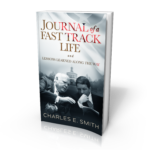 One of the most important decisions a college student faces upon receipt of a degree is whether to go on to graduate school or to enter the job market, and if the latter, which job. Too often, mistakes made at this juncture will limit one’s career options later in life.
One of the most important decisions a college student faces upon receipt of a degree is whether to go on to graduate school or to enter the job market, and if the latter, which job. Too often, mistakes made at this juncture will limit one’s career options later in life.
The two most common mistakes I have observed are (1) opting to go directly into graduate school and (2) selecting the first job offer for the wrong reasons. The almost inevitable problem with the former is that the individual will consume the better part of his/her third decade of life in school pursuing Master’s or PhD degrees and emerge as a thirty-year-old with lots of degrees and no experience in the workplace. It is a mismatch that can, and often does, play havoc with an individual’s career aspirations. The reason, stated simply, is that the multiple degree-credentialed individual expects more pay than an employer who is looking more for evidence of workplace experience wants to pay.
The second common mistake relates to selecting a job based on the level of pay rather than on the opportunity to gain valuable experience and/or to learn from bosses who can serve as mentors.
My first full-time job was editing the weekly newspaper in my hometown. It offered two things that higher paying alternatives elsewhere failed to offer: (1) the opportunity to be a visible community leader at an early age, learning firsthand all aspects of the newspaper business in a small- town environment where rookie mistakes, which were inevitable, had minimal impact and (2) the opportunity to work for Coleman Harwell, former editor of the Nashville Tennessean and the man who hired famous journalists such as David Halberstam and John Seigenthaler. Harwell was my first mentor and later became a key figure in three of my most important career moves.
Mr. Harwell was a taskmaster. He expected perfection, even from a novice twenty-one-year-old editor. But he never asked me to do anything he was unwilling to do. Many nights I would leave the office at midnight with typewriter and paper to finish the news stories for the following day’s issue at home so I could be with my wife and son. Without exception, as I walked out the door, I would see Mr. Harwell, then nearing retirement, still toiling at the typewriter with the next day’s editorials.
When I decided to leave Harwell to go to graduate school in Nashville, he introduced me to John Seigenthaler, then editor of the Nashville Tennessean, and paved the way for nearly four years of solid experience working on a major daily newspaper. And relevant to the point of this lesson, it was Seigenthaler who then became a mentor and opened the door for the third major experience in my formative years from age twenty to thirty, serving as press secretary to the Democratic nominee for governor.
The important lesson is that during the formative years, gaining experience, visibility, and quality mentors are far more important than salary and perks. Short-term loss of potential income in return for long-term gain in experience from working with strong leaders and helpful mentors is a tradeoff that has paid rich dividends for me over the years.
-adapted from Journal of a Fast Track Life, Chapter 3. © 2018 Charles E. Smith. All rights reserved.

